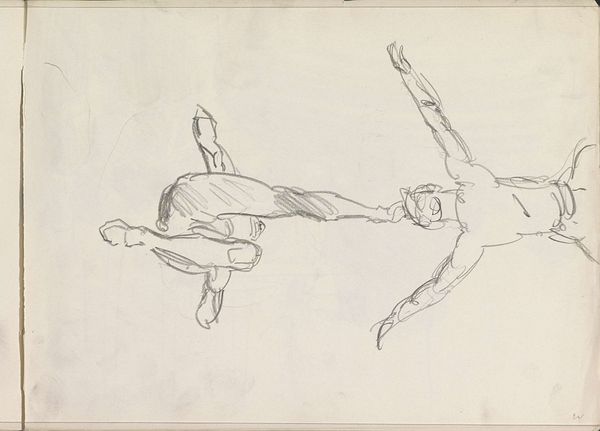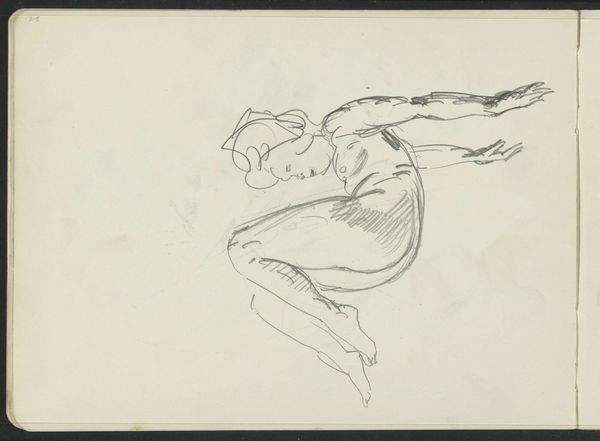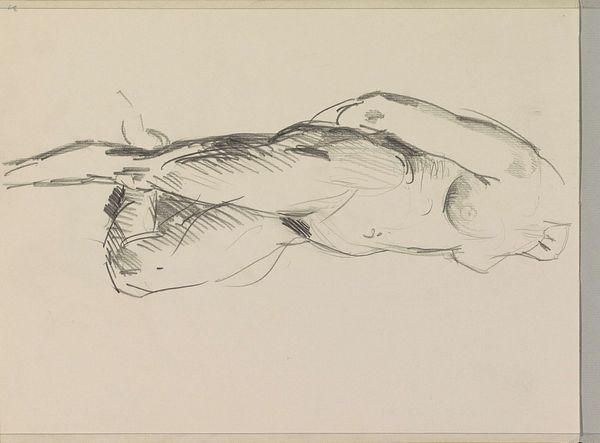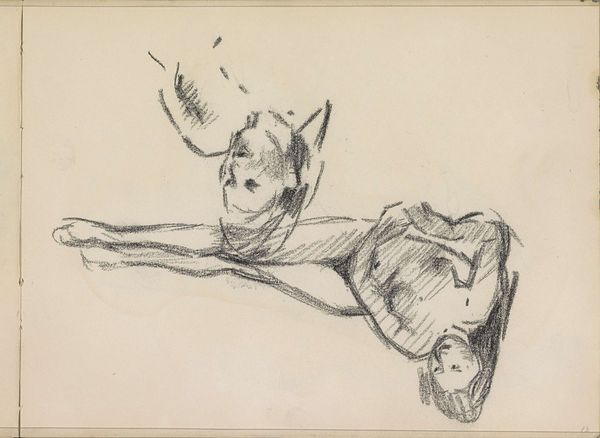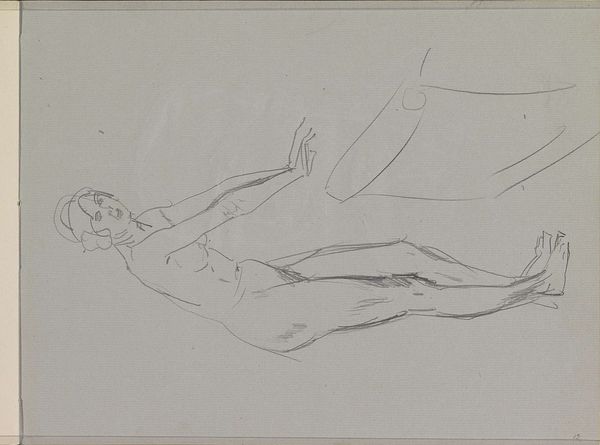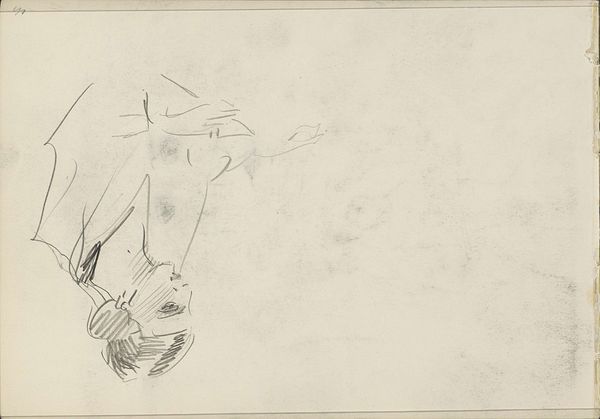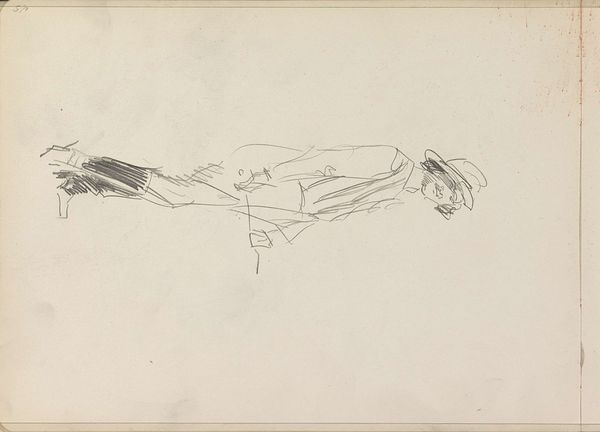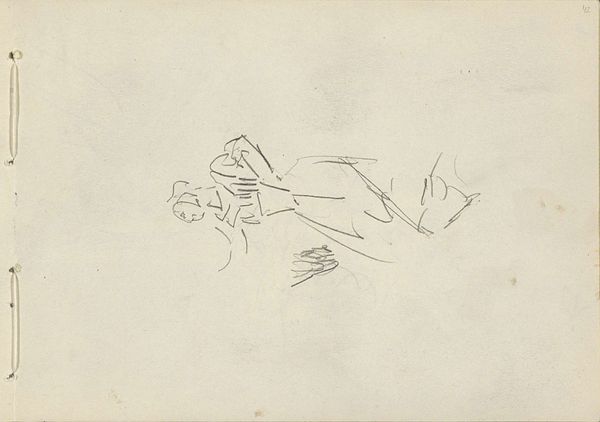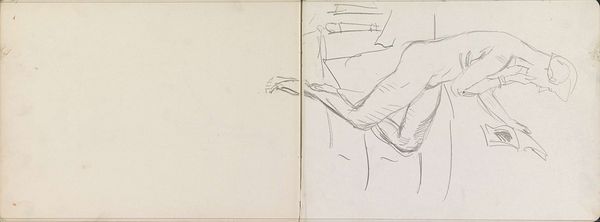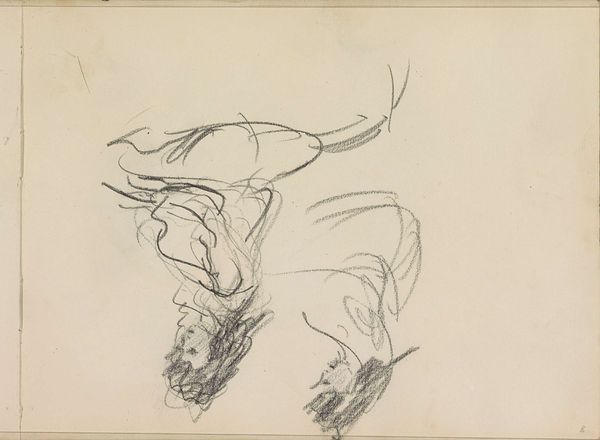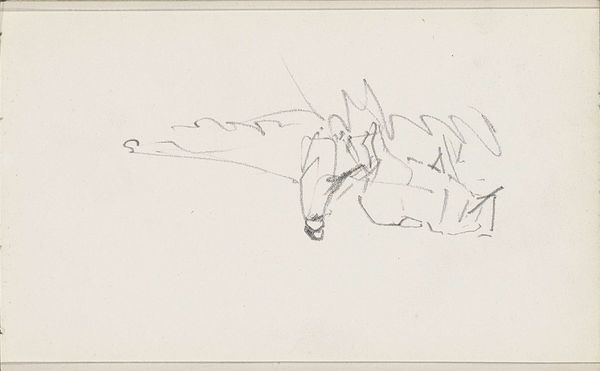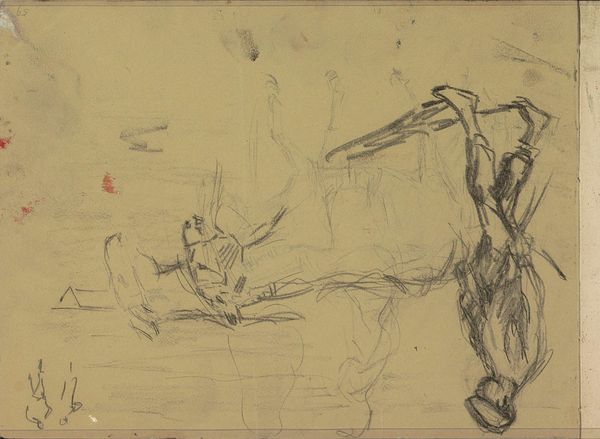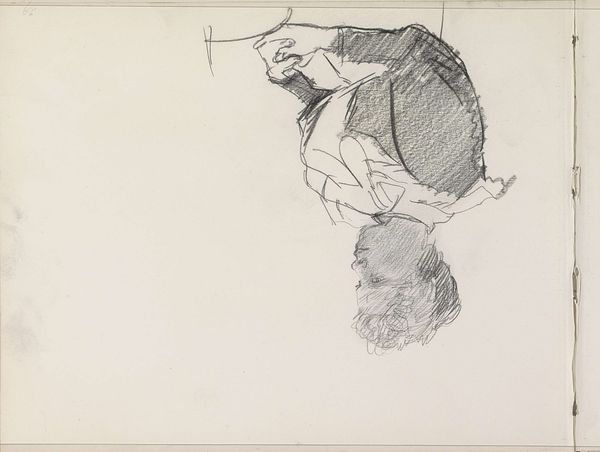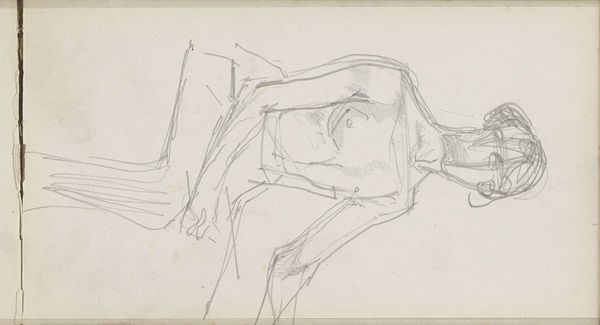
drawing, pencil
#
portrait
#
drawing
#
figuration
#
pencil
#
nude
Copyright: Rijks Museum: Open Domain
Editor: We’re looking at Isaac Israels' "Seated Female Nude," a pencil drawing dated between 1875 and 1934, currently housed in the Rijksmuseum. It’s a rather casual, almost fleeting sketch. What can you tell us about this piece? Curator: Israels was working during a fascinating time in the history of the nude. Consider how earlier academic nudes, often idealized and allegorical, were being challenged by more realistic and intimate depictions. This drawing seems to partake in that shift. How might this shift reflect broader societal changes regarding the representation of women? Editor: So, you are suggesting it represents some kind of evolving cultural narrative. I suppose there is less idealization, making it less classical and maybe more… relatable? Curator: Exactly. And note the institutional context: the Rijksmuseum. By acquiring and displaying this drawing, the museum is validating a particular type of representation, moving away from the grand narratives towards more personal or modern perspectives. Israels’ choice of media also fits this transition: pencil drawings weren’t generally seen as serious art for institutions at this time. Editor: That's a great point. Pencil makes it feel much more immediate. Was Israels making a statement about beauty and the human form with this? Curator: Potentially, yes, although his intention remains open to interpretation. Perhaps more pointedly, this piece indicates an attempt to democratize access to the art world and question how institutions frame art's public role through a simple, elegant drawing of the figure. Does that framing shift your perspective? Editor: Absolutely. It's interesting to think about how a simple drawing like this reflects such significant shifts in cultural values and how museums participate in these discussions. I didn't consider that pencil strokes can speak volumes. Curator: And those "volumes" can teach us so much more if we delve a bit into social, cultural, and institutional circumstances, like we just did. Thank you for sharing your sharp perspective with me!
Comments
No comments
Be the first to comment and join the conversation on the ultimate creative platform.
